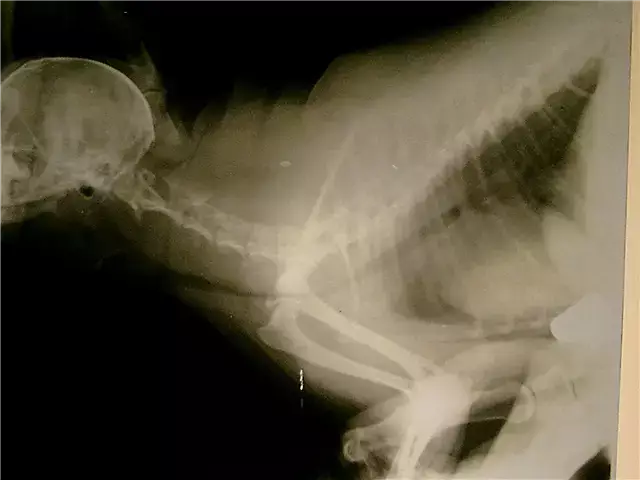- Author Rachel Wainwright wainwright@abchealthonline.com.
- Public 2023-12-15 07:39.
- Last modified 2025-11-02 20:14.
Acefen
Instructions for use:
- 1. Release form and composition
- 2. Indications for use
- 3. Contraindications
- 4. Method of application and dosage
- 5. Side effects
- 6. Special instructions
- 7. Drug interactions
- 8. Analogs
- 9. Terms and conditions of storage
- 10. Terms of dispensing from pharmacies

Acefen is a drug that improves mental performance, memory and higher integrative functions of the brain.
Release form and composition
Acefen is available in the form of 100 mg tablets (50 pieces per package).
The active ingredient of Acefen is meclofenoxate.
Indications for use
The drug belongs to the group of nootropic drugs, is a stimulator of mnestic functions responsible for improving memory and the central nervous system, improves blood supply to the brain and metabolic processes in the central nervous system, and also has an antihypoxic effect.
Acefen is prescribed for diseases such as:
- asthenia (weakness, depression);
- discirculatory encephalopathy (progressive organic changes in the brain tissue due to cerebrovascular disorders);
- mental retardation of children and adolescents;
- obsessive neurosis (obsessive states);
- neurotic disorders;
- depressed state;
- violation of mnestic functions in old age or with brain damage;
- violation of cerebral circulation;
- diencephalic syndrome (a complex of disorders of the function of the medulla oblongata);
- chronic or acute cerebral organic insufficiency;
- amyotrophic lateral sclerosis (progressive chronic nerve damage).
Contraindications
The main contraindications to the use of Acefen are:
- psychosis;
- anxiety;
- hypersensitivity to the components of the drug;
- excitation;
- infectious diseases of the central nervous system.
Acefen is not prescribed during pregnancy and lactation, its use during these periods is possible only as directed by a doctor after evaluating the “benefit-harm” ratio for the health of the mother and the child.
Method of administration and dosage
Acefen is taken without chewing, after meals, with plenty of liquid. A single dosage for adults is 250-500 mg, the frequency of use is 3 times a day. Children are shown the use of 200-400 mg per day (in three divided doses).
Treatment is usually long-term. The clinical effect of the use of Acefen appears several weeks after the start of therapy.
Side effects
In most cases, the drug is well tolerated. Sometimes there can be observed: anxiety, heartburn, gastralgia, increased appetite, insomnia, abdominal pain, skin allergic reactions.
In patients with schizophrenia, when using Acefen, an increase in fears, anxiety, delusions and hallucinations is possible.
special instructions
In order to avoid the development of possible sleep disorders, it is recommended to take the last dose before 4 pm.
Drug interactions
There are no data on drug interactions between Acefen and other drugs.
Analogs
According to the mechanism of action, the analogs of Acefen are: Vinpotropil, Amilonosar, Bravinton, Vinpocetin, Glycine, Omaron, Piracesin, Idebenone, NooKam, Pantogam, Vincetin, Ginkoum, Nooclerin, Phezam, Carnitsetin, Phenotropil, Gopamcetsezin, Luciferin, Pantogam, Cellex, Telektol, Cerebrolysate, Thiocetam.
Terms and conditions of storage
Store at temperatures up to 25 ° C.
Shelf life is 2 years.
Terms of dispensing from pharmacies
Dispensed by prescription.
Information about the drug is generalized, provided for informational purposes only and does not replace the official instructions. Self-medication is hazardous to health!






